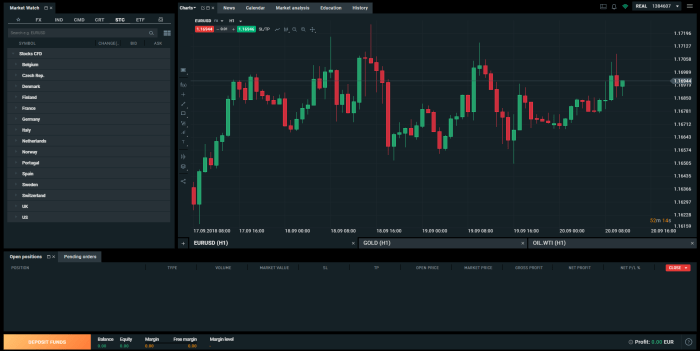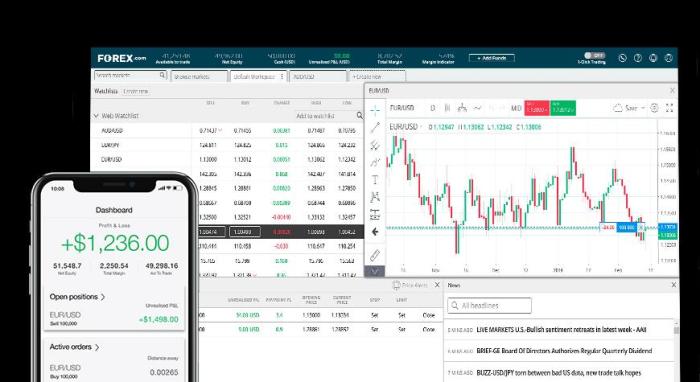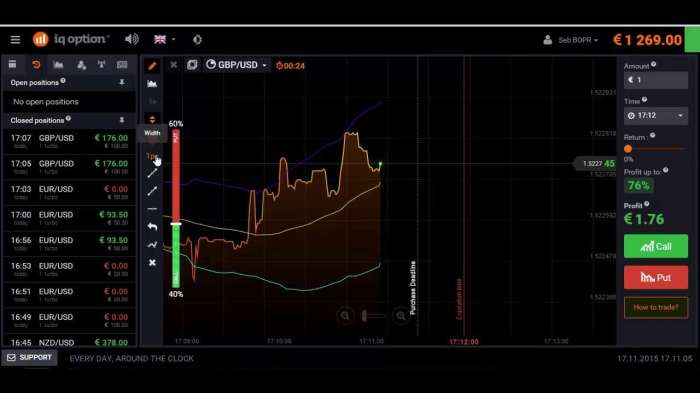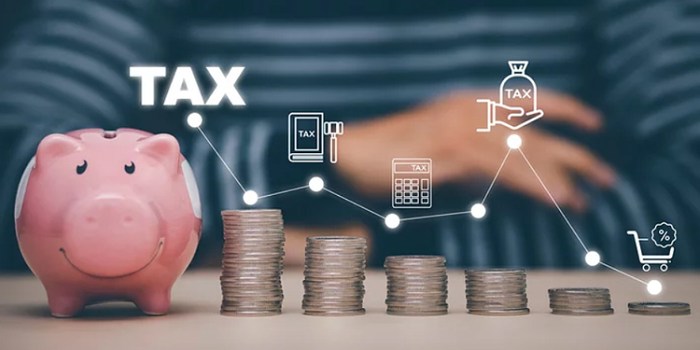
Forex trading taxation: Navigating the complex world of foreign exchange trading and its tax implications can feel like trying to decipher ancient hieroglyphs. But fear not, fellow trader! This guide unravels the mysteries of capital gains, deductible expenses, and international tax considerations, transforming your tax season from a headache into a manageable task. We’ll break down the intricacies of different trading strategies, helping you optimize your returns and minimize your tax burden.
From understanding the various types of forex trading accounts and their tax implications to mastering the art of tracking your trading activities for accurate reporting, we’ll equip you with the knowledge and tools to confidently handle your forex tax obligations. We’ll delve into the specifics of short-term and long-term capital gains, explore allowable deductions (and those sneaky non-deductibles!), and even tackle the international tax landscape for global traders. Get ready to conquer your forex tax returns!
Understanding Forex Trading for Tax Purposes
Navigating the world of forex trading can be exhilarating, but understanding the tax implications is crucial to avoid unpleasant surprises come tax season. This guide will demystify the tax aspects of forex trading, providing a clear understanding of how to track, categorize, and report your forex activities. Remember, this information is for general guidance only and you should always consult with a qualified tax professional for personalized advice.
Forex Trading Account Types and Tax Implications
Different forex trading accounts have varying tax implications. For instance, a standard forex trading account, where you are trading for profit, will treat your gains as ordinary income, subject to your usual income tax rates. This means your profits are taxed at your marginal tax rate, which increases as your income rises. Conversely, if you operate a forex trading account within a retirement account like a Roth IRA or a traditional IRA, the tax implications will differ significantly depending on the type of account and the rules governing withdrawals. Always check the specific tax rules for your retirement account. Tax-advantaged accounts offer varying levels of protection from taxation during the trading period, but they usually have strict regulations on when and how withdrawals can be made.
Methods for Tracking Forex Trading Activities
Meticulous record-keeping is paramount. You need a detailed log of every trade, including the date, the currency pair traded, the amount of currency bought or sold, the exchange rate at the time of the transaction, commissions paid, and any other relevant fees. Spreadsheets are a popular choice, offering customizable tracking and the ability to calculate profit and loss easily. Dedicated forex trading software often includes built-in reporting features designed specifically for tax purposes. Some brokers also provide transaction history downloads, which can significantly simplify the process. Regardless of the method chosen, accuracy and consistency are key. Maintaining comprehensive records ensures you can accurately report your income and claim any allowable deductions.
Categorizing Forex Trading Income and Expenses
Categorizing your forex trading income and expenses correctly is essential for accurate tax reporting. Income is straightforward: it’s the profit you make from your trades. Expenses are slightly more nuanced. These can include brokerage commissions, software subscriptions, educational courses related to forex trading, and even a portion of your home office expenses if you dedicate a specific area to your trading activities. It’s crucial to keep separate records for your personal and trading expenses to avoid confusion. Proper categorization ensures you can deduct eligible expenses, reducing your overall tax liability. Keep detailed receipts and documentation for all expenses.
Sample Tax Form for Reporting Forex Trading Profits and Losses
While the specific form will depend on your location and tax system, the fundamental principle remains the same. You’ll need to report your forex trading profits and losses on the relevant schedule within your tax return. For example, in the US, Schedule C (Profit or Loss from Business) is commonly used for self-employed individuals. This schedule requires you to detail your gross income from forex trading, as well as all related expenses. The difference between your gross income and your total allowable expenses represents your net profit or loss, which is then reported on your overall tax return. For instance, if your gross income from forex trading was $10,000 and your allowable expenses totaled $2,000, your net profit would be $8,000, which would be subject to income tax. A hypothetical example of a simplified tax form entry might show: Gross Income: $10,000; Expenses (commissions, software): $2,000; Net Profit: $8,000. Remember, this is a simplified example and doesn’t encompass all potential tax scenarios. Always consult with a tax professional for accurate guidance.
Capital Gains Taxes on Forex Trading Profits
Navigating the world of forex trading involves more than just analyzing charts and predicting market movements; it also requires a solid understanding of the tax implications. Profits from your forex endeavors are subject to capital gains taxes, and the rate you pay depends on several factors, primarily the length of time you held the position.
Short-Term and Long-Term Capital Gains Tax Rates
The Internal Revenue Service (IRS) categorizes capital gains as either short-term or long-term, impacting the applicable tax rate. Short-term capital gains are profits from assets held for one year or less, while long-term capital gains are profits from assets held for more than one year. Your tax rate for short-term capital gains will be the same as your ordinary income tax bracket, potentially ranging from 10% to 37% depending on your income. Long-term capital gains rates are generally lower and depend on your taxable income, falling into brackets of 0%, 15%, or 20%. For higher-income taxpayers, the rate can be even higher. It’s crucial to consult the current IRS guidelines for the most up-to-date tax brackets.
Comparison with Other Investment Types
Forex trading’s tax treatment shares similarities with other investments like stocks and bonds, where capital gains taxes apply. However, forex trading differs in certain aspects. Unlike stocks, where you might receive dividends, forex trading profits solely come from currency exchange rate fluctuations. This impacts the way you calculate your cost basis, which we’ll discuss shortly. Also, unlike some other investments, forex trading often involves more frequent transactions, potentially leading to a higher number of taxable events throughout the year. This makes meticulous record-keeping absolutely vital.
Determining the Cost Basis of Forex Trades
Accurately determining your cost basis is fundamental to correctly calculating your capital gains. The cost basis represents your initial investment in a currency pair. It’s straightforward in most cases: it’s simply the amount of money you spent to acquire the base currency. For example, if you bought 10,000 EUR at a rate of 1.10 USD/EUR, your cost basis is 11,000 USD. However, things can get more complex with multiple trades involving the same currency pair, requiring careful tracking of each transaction. Software designed for tax reporting in forex trading can significantly simplify this process.
Tax Scenarios for Various Profit Levels
The following table illustrates various tax scenarios for different profit levels, assuming a long-term capital gains tax rate of 15% for illustrative purposes. Remember that your actual tax liability will depend on your individual tax bracket and other income sources. This is a simplified example and does not account for all potential tax implications. Consult a tax professional for personalized advice.
| Profit Level (USD) | Long-Term Capital Gains Tax Rate (Assumed 15%) | Capital Gains Tax (USD) | Net Profit (USD) |
|---|---|---|---|
| 10,000 | 15% | 1,500 | 8,500 |
| 50,000 | 15% | 7,500 | 42,500 |
| 100,000 | 15% | 15,000 | 85,000 |
| 500,000 | 15% | 75,000 | 425,000 |
Deductible Expenses in Forex Trading

Navigating the tax landscape as a forex trader can feel like charting a volatile market itself. Understanding what expenses you can legitimately deduct is crucial for minimizing your tax liability and maximizing your after-tax profits. This section clarifies allowable deductions and highlights common pitfalls to avoid.
Knowing which expenses are deductible and which aren’t is vital for accurate tax reporting. Incorrectly claiming deductions can lead to penalties, so careful record-keeping is paramount. Let’s break down the specifics.
Allowable Deductions for Forex Traders
Several expenses incurred while conducting forex trading activities are generally considered deductible. These deductions can significantly reduce your taxable income, provided you maintain proper documentation.
- Software and Platforms: The cost of trading platforms, charting software, and other specialized software used for analysis and execution of trades is usually deductible. This includes subscription fees for real-time market data feeds and technical analysis tools.
- Education and Training: Expenses related to improving your forex trading skills are often deductible. This can encompass courses, seminars, workshops, and books specifically focused on forex trading strategies, risk management, and market analysis. However, general business management courses may not qualify unless directly applicable to forex trading.
- Subscriptions and Memberships: Fees paid for subscriptions to financial news services, market research reports, or professional organizations related to forex trading are generally deductible. This also includes access to trading signals or educational platforms directly related to forex trading.
- Office Expenses (if applicable): If you have a dedicated home office used exclusively for forex trading, a portion of your home-related expenses (rent, utilities, insurance) may be deductible. The percentage is determined by the ratio of your home office space to the total area of your home. Detailed record-keeping is essential to substantiate this claim.
Non-Deductible Expenses for Forex Trading
Not all expenses related to your trading activities are deductible. Understanding these limitations is equally important to avoid errors.
- Personal Expenses: Expenses unrelated to your forex trading business, such as entertainment, travel for leisure, or personal meals, are not deductible. Even if these occur during a trading day, they must be clearly separated from business expenses.
- Gambling Losses: Losses incurred from forex trading are only deductible to the extent of your trading gains. This means you cannot deduct losses exceeding your profits to reduce your overall tax liability.
- Capital Expenses: While the cost of software and subscriptions are deductible, the initial purchase price of a computer or other significant equipment is generally considered a capital expense, and depreciated over time rather than deducted in a single year. Consult a tax professional for details on depreciation methods.
Supporting Documentation for Forex Trading Expenses
Meticulous record-keeping is essential for substantiating your claimed deductions. The IRS requires detailed documentation to verify the legitimacy of your expenses.
- Invoices and Receipts: Keep all invoices and receipts for software, subscriptions, courses, and other expenses. These documents should clearly indicate the date, amount, vendor, and a description of the goods or services purchased.
- Bank Statements: Your bank statements provide evidence of your trading activity and the payments made for your deductible expenses. They serve as supporting documentation for your expense claims.
- Trading Records: Maintain detailed records of your trading activities, including the dates of transactions, amounts traded, profits, and losses. This information helps establish your business activity and the legitimacy of your claimed expenses.
- Tax Software: Using reputable tax software designed for self-employed individuals can help organize your records and ensure accurate reporting of your forex trading income and expenses.
Strategies for Minimizing Tax Liability
Legitimate tax planning can significantly reduce your tax burden. These strategies focus on maximizing allowable deductions while adhering to tax laws.
- Maintain Accurate Records: This is the cornerstone of successful tax planning. Keep detailed records of all income and expenses, and organize them systematically for easy access during tax season.
- Maximize Deductible Expenses: Carefully review all your expenses to identify those that are legitimately deductible. Don’t overlook smaller expenses that can add up to significant savings.
- Consult a Tax Professional: A qualified tax professional specializing in forex trading can provide personalized advice tailored to your specific circumstances. They can help you identify all potential deductions and ensure compliance with tax laws.
- Understand Tax Laws: Stay informed about changes in tax laws that may affect forex traders. This ensures you remain compliant and take advantage of any beneficial updates.
Tax Implications of Forex Trading Strategies
Navigating the tax landscape of forex trading can feel like navigating a maze, especially when different trading strategies come into play. Understanding how your chosen approach affects your tax liability is crucial for minimizing your tax burden and ensuring compliance. This section will break down the tax implications of various forex trading strategies, comparing them to other investment losses and clarifying the rules surrounding wash-sale restrictions.
Tax Implications of Different Forex Trading Strategies
The frequency of your trades significantly impacts how your profits and losses are categorized for tax purposes. Scalping, swing trading, and day trading each have distinct tax implications. Scalpers, who hold positions for very short periods, often face a higher volume of transactions, leading to potentially more complex tax reporting. Swing traders, holding positions for days or weeks, have a simpler reporting process, generally. Day traders, engaging in multiple trades within a single day, fall under specific regulatory scrutiny and may face different tax classifications depending on their trading volume and overall strategy. The IRS considers day trading differently than other types of trading activities and may require more rigorous documentation.
Comparison of Forex Trading Losses with Other Investment Losses
Forex trading losses, like other investment losses, can be used to offset capital gains. However, the specifics can vary. Losses from forex trading are generally considered capital losses, subject to the same annual limitations as losses from stocks or bonds. This means you can deduct up to $3,000 ($1,500 if married filing separately) of net capital losses against your ordinary income annually. Any excess losses can be carried forward to future tax years. Unlike some other investments, forex trading losses don’t have special treatment regarding their deductibility; they’re treated consistently with other capital losses.
Wash-Sale Restrictions in Forex Trading
Wash-sale rules prevent taxpayers from claiming a loss on a security if they repurchase a “substantially identical” security within 30 days before or after the sale. In forex trading, the application of wash-sale rules can be nuanced. While it’s generally understood that buying the same currency pair within the 30-day window would trigger a wash-sale, the interpretation might differ slightly depending on the specific circumstances. For example, buying a different currency pair that’s highly correlated with the originally sold pair could potentially fall under the wash-sale rules, although this interpretation may vary based on the IRS’s assessment of the situation. It’s always advisable to consult a tax professional for clarification on specific cases.
Flowchart: Trading Strategy and Tax Calculation Impact
The following flowchart illustrates how different forex trading strategies influence the tax calculation process. Imagine a simplified flowchart with three branches: Scalping, Swing Trading, and Day Trading. Each branch leads to a box representing the type of capital gains (short-term or long-term), followed by a box indicating the applicable tax rates based on income bracket. A final box would show the calculation of net capital gains or losses after considering allowable deductions. The flowchart would visually represent the path from trading strategy to final tax liability, highlighting the different tax implications based on the chosen strategy. The complexity of the calculation will increase as the frequency of trades increases. For instance, a scalper would have a more complex calculation than a swing trader. This is due to the higher volume of transactions and potential for more short-term capital gains, necessitating more detailed record-keeping and tax reporting.
Reporting Forex Trading Income to Tax Authorities
Navigating the tax landscape of forex trading can feel like navigating a maze, especially when it comes to accurately reporting your income. Understanding the procedures and common pitfalls is crucial to avoid penalties and ensure compliance. This section will guide you through the process, offering practical advice and examples to help you stay on the right side of the taxman.
Filing your tax return with forex trading income requires meticulous record-keeping and a clear understanding of the relevant tax laws in your jurisdiction. The specific procedures vary depending on your country of residence, but the general principles remain the same: accurate reporting of profits and allowable deductions. Failing to do so can result in significant penalties, including back taxes and interest.
Procedures for Filing Tax Returns Including Forex Trading Income
The process typically involves including your forex trading income within your overall income statement. This means meticulously documenting all transactions, calculating your net profit or loss, and reporting this figure on the appropriate sections of your tax return. You’ll need to provide details of your trading account(s), including account numbers and brokerage statements, to substantiate your claims. Many tax authorities now offer online filing systems, simplifying the process. However, it’s always advisable to seek professional tax advice if you are unsure about any aspect of the process. For example, in the US, Schedule C (Form 1040) is often used to report profit or loss from a business, which can include forex trading if it’s considered a business activity.
Common Errors in Reporting Forex Trading Income and How to Avoid Them
A common mistake is neglecting to report all income. This can range from forgetting smaller profits to intentionally omitting trades to reduce tax liability. Another frequent error is misclassifying forex trading income – treating it as a hobby instead of a business if it’s conducted with sufficient frequency and organization. This can lead to incorrect deductions and tax assessments. Inaccurate record-keeping, such as failing to track all expenses or improperly documenting transactions, is another significant issue. To avoid these errors, maintain detailed and organized records, including trade confirmations, brokerage statements, and expense receipts. Consider using accounting software designed for traders to streamline the process and reduce the risk of errors. If you’re unsure about the classification of your forex trading activity, seek professional tax advice. A consistent and well-maintained record-keeping system is the best defense against these common mistakes.
Best Practices for Maintaining Accurate Records of Forex Trading Activities
Maintaining accurate records is paramount. This involves keeping detailed transaction records for each trade, including the date, currency pair, buy/sell price, quantity, commission fees, and any other relevant charges. Brokerage statements are invaluable for this, but supplementing them with a personal spreadsheet or dedicated trading journal can enhance accuracy and organization. This allows for easy reconciliation with your tax filings and minimizes the risk of errors. Furthermore, retain all documentation related to expenses, such as software subscriptions, education courses, and consulting fees. These are often deductible expenses, and having the proper documentation ensures you can claim them legitimately. Regularly back up your records, both digitally and physically, to protect against data loss. A well-organized system ensures you can easily access the necessary information when filing your tax return.
Calculating Total Taxable Income from Forex Trading Activities
Calculating your taxable income involves subtracting allowable deductions from your total trading profits. This requires a clear understanding of what constitutes a deductible expense in your jurisdiction. For example:
Total Taxable Income = (Total Profits from Forex Trading) – (Total Allowable Deductions)
Let’s say a trader made a profit of $10,000 from forex trading and had deductible expenses totaling $2,000 (software, courses, etc.). Their taxable income from forex trading would be $8,000 ($10,000 – $2,000). This amount is then incorporated into their overall income calculation for the tax year. Remember, the specific rules and allowable deductions vary depending on your location and tax laws. Always consult with a tax professional or refer to your country’s tax authority guidelines for precise details.
Tax Implications of Forex Trading Software and Tools
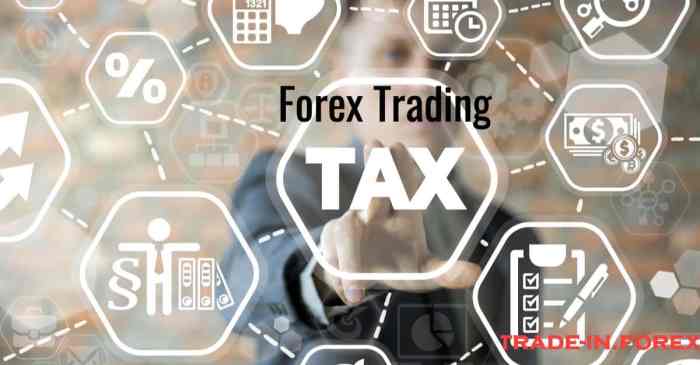
Navigating the tax landscape of forex trading can be tricky, especially when it comes to the software and tools you use to make your trades. Understanding the tax deductibility of these expenses is crucial for minimizing your tax burden and maximizing your profits. This section clarifies the often-confusing world of capital versus operational expenses related to your forex trading technology.
Deductibility of Forex Trading Software Expenses
The IRS generally allows deductions for ordinary and necessary business expenses. For forex traders, this includes expenses directly related to generating income. Software subscriptions, platform fees, and other tools used for analysis, charting, and execution of trades are typically considered deductible. However, the key is demonstrating a direct connection between the expense and your trading activity. Simply owning the software isn’t enough; you need to prove its use in your trading operations. Keeping meticulous records of software usage and its contribution to your trading success is vital for claiming these deductions. Failing to do so could lead to challenges during an audit.
Capital vs. Operational Expenses for Forex Trading Tools
The distinction between capital and operational expenses is critical for tax purposes. Operational expenses are those incurred in the day-to-day running of your forex trading business. These are usually fully deductible in the year they are incurred. Examples include monthly subscriptions to charting software like TradingView or MetaTrader platform fees. Capital expenses, on the other hand, are those incurred for assets with a useful life of more than one year. These are not fully deductible in the year of purchase but are depreciated over their useful life. A powerful, high-end trading computer or a specialized trading terminal would be considered a capital expense. The depreciation method used will impact the amount you can deduct each year.
Examples of Software Subscriptions and Tax Implications
Let’s look at some common forex trading software and their potential tax implications. A subscription to a charting platform like TradingView, used daily for technical analysis, is a deductible operational expense. The monthly fee is directly tied to your trading activity and can be claimed as a deduction. Similarly, a subscription to a news service providing real-time market updates is also a deductible operational expense. In contrast, purchasing a high-end trading computer represents a capital expense. Its cost would be depreciated over several years, reducing your taxable income gradually. Software licenses purchased for one-time fees may also be depreciated over their useful life, depending on the specific software and its expected lifespan.
Comparison of Forex Trading Software and Tax Implications
| Software/Tool | Type of Expense | Deductibility | Example |
|---|---|---|---|
| TradingView Subscription | Operational | Fully deductible in the year incurred | Monthly subscription fee for charting and analysis |
| MetaTrader 4/5 Platform Fees | Operational | Fully deductible in the year incurred | Brokerage fees associated with using the platform |
| High-End Trading Computer | Capital | Depreciated over several years | Cost of a computer with high processing power and multiple monitors |
| Advanced Algorithmic Trading Software | Capital | Depreciated over several years | One-time purchase fee for sophisticated trading software |
International Tax Considerations for Forex Traders
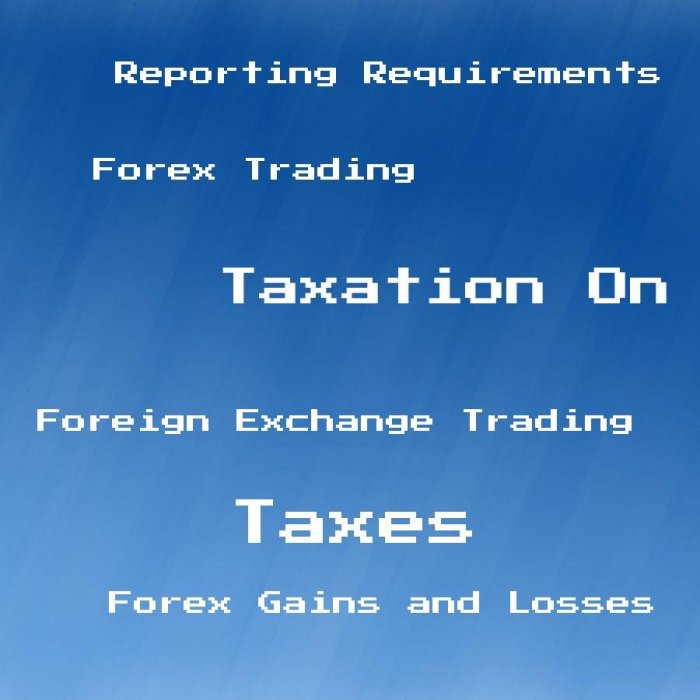
Navigating the world of forex trading across borders introduces a whole new layer of complexity, especially when it comes to taxes. Understanding the international tax implications is crucial for forex traders who operate globally, ensuring compliance and minimizing potential liabilities. This section will shed light on the key aspects international forex traders need to consider.
The tax implications for forex traders residing in different countries vary significantly, depending on each nation’s specific tax laws and any applicable tax treaties. Factors such as residency status, the location of the broker, and the nature of the trading activity all play a role in determining tax obligations. This can lead to a confusing web of regulations, requiring careful attention to detail and, often, professional tax advice.
Tax Treaties and Their Impact on Forex Trading Income
Tax treaties, also known as double taxation agreements, are agreements between countries designed to prevent individuals and businesses from being taxed twice on the same income. These treaties often specify how income earned in one country by a resident of another country will be taxed. For forex traders, a tax treaty might reduce the tax burden by either exempting forex trading profits from tax in one country or providing a credit for taxes already paid in another. For example, a trader residing in the US who earns profits through a broker based in the UK might find the US-UK tax treaty relevant in determining their overall tax liability. The specific terms of each treaty are crucial and should be reviewed carefully, as they can vary considerably.
Reporting Forex Trading Income Earned in Foreign Countries
Reporting forex trading income earned abroad requires meticulous record-keeping and adherence to specific reporting requirements. Many countries require forex traders to declare their foreign income on their tax returns, often using specific forms or schedules. Failure to report this income can result in significant penalties. The specific reporting requirements vary widely by country. For instance, in the US, the Foreign Bank Account Report (FBAR) and Form 8938 may apply depending on the value of foreign accounts. Similarly, other countries have their own reporting mechanisms for foreign income, often requiring detailed documentation of transactions and profit calculations.
Key Considerations for International Forex Traders Regarding Taxation, Forex trading taxation
Understanding the complexities of international forex trading taxation requires careful planning and attention to detail. Here are some key considerations:
- Residency Status: Your country of residency dictates the primary tax laws that apply to your forex trading income.
- Tax Treaties: Identify and understand any tax treaties between your country of residence and the countries where your broker is located or where your trading activities take place.
- Brokerage Location: The location of your brokerage firm can impact tax reporting and withholding requirements.
- Record Keeping: Maintain meticulous records of all forex transactions, including dates, amounts, currencies, and profits/losses.
- Professional Advice: Seek professional advice from a tax advisor experienced in international taxation to ensure compliance and optimize your tax strategy.
- Currency Exchange Rates: Accurately convert foreign currency transactions into your home currency using the appropriate exchange rate for tax purposes. Inconsistent application can lead to errors in calculating taxable income.
Ultimate Conclusion: Forex Trading Taxation
Successfully navigating forex trading taxation is crucial for every trader’s financial well-being. By understanding the intricacies of capital gains taxes, allowable deductions, and international implications, you can confidently manage your tax obligations and maximize your profits. Remember, accurate record-keeping is paramount, and seeking professional advice when needed is a smart move. So, sharpen your pencils (or fire up your spreadsheet software!), and conquer your forex tax returns with confidence!
Learn about more about the process of forex algo trading in the field.
For descriptions on additional topics like forex trading patterns, please visit the available forex trading patterns.
